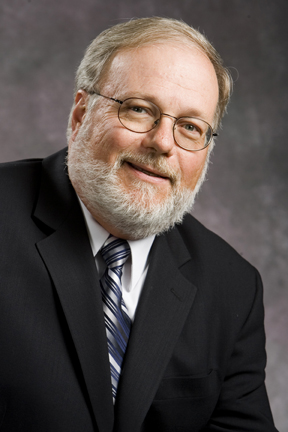
By Andrew Cohen
Two Berkeley Law funds have been created in honor of Professor Philip Frickey, a leading authority on public law and federal Indian law and policy. The law school will also host a full-day symposium April 24 to celebrate his extensive contributions to legislation, Indian law, and constitutional law.
Several former and current Berkeley Law students are helping raise money for the new funds, which Frickey says is “extraordinarily heartwarming and rewarding.” The recent winner of Berkeley Law’s Rutter Award for Teaching Distinction, Frickey sees a glaring need for young legal talent to work on Indian law issues.
“Indian law is an incredibly difficult legal puzzle and frequently incoherent,” he says. “It hasn’t been well-developed intellectually, and of course the social consequences of that are quite stark. To give students an opportunity to contribute in this area is both important and gratifying.”
The Philip Frickey Public Law Fund will award $2,000 to a second or third-year Berkeley Law student in financial need who has demonstrated a strong commitment to the study and practice of Indian or public law. The annual fund will also award a prize of $500 or more to the best Berkeley Law student paper in Indian or public interest law.
The Philip Frickey Fellowship will award $4,000 to a first or second-year law student who accepts summer employment in an Indian law or public law position that involves advocacy on behalf of the disenfranchised—or issues that are inadequately addressed by U.S. law. Students from any ABA-accredited law school in the nation are eligible for the award.
Among those helping contribute to the funds is Alice Bodnar ’08, a practicing attorney who plans to work with tribes to develop renewable energy projects on Indian land. “He’s a rare combination,” Bodnar says of Frickey. “He’s brilliant, a good teacher, and he cares what the students think. I’d leave his class every day excited about the law.”
At the April 24 symposium, Frickey’s scholarship and teaching will be celebrated with an academic “Festschrift” that features top scholars in his legal areas of expertise. Papers presented at the event will be published in a special issue of the California Law Review.
An Unexpected Career Turn
Coming out of law school, Frickey never expected to focus on Indian law. But while clerking for U.S. Supreme Court Justice Thurgood Marshall, several Indian law cases came before the Court. Frickey became immersed in his research, and increasingly fascinated with the subject matter.
Following his clerkship, he returned home to Kansas when his mother became ill, and he “stumbled into” teaching Torts and a Constitutional Law seminar for one semester at the Kansas University School of Law. “That kind of ruined me for law practice,” says Frickey, “because teaching was such a wonderful experience.”
Sure enough, after three years at a firm in Washington, D.C., Frickey returned to teaching at the University of Minnesota Law School. He spent 17 years there, and tried teaching Indian law on what he thought might be a short-term basis. Instead, Frickey “fell in love with it” and eventually became one of the nation’s top experts in the field.
In 2000, Frickey came to Berkeley Law and taught Indian Law, Legislation, and Constitutional Law. This year, he was given the Lawrence Baca Lifetime Achievement Award from the Federal Bar Association’s Indian Law Section.
Beyond his classroom teaching and far-reaching scholarship, he had made an immediate impact as chair of Berkeley Law’s faculty appointments committee.
Frickey’s drive to infuse Berkeley Law with talented young instructors—and to help mentor them after their arrival—enhanced the school’s reputation and its ability to recruit and engage exceptional students.
“We have the best junior faculty in the country and I’m very proud of helping to hire them,” he says. “They’re all dynamic people and passionate educators, and the effect they’ve had on this place has been amazing.”
As the co-author of popular casebooks on legislation, constitutional law, and Indian law, Frickey’s own academic impact extends to law students across the country. He has also volunteered his skills outside the scholastic arena, working with the Native American Rights Fund and National Congress of American Indians in writing amicus briefs in U.S. Supreme Court cases.
Grateful for Student Support
Frickey will take administrative leave in July due to a serious illness that requires special treatment. He informed students in his spring-semester classes about his condition.
“I felt it was important to talk to them about it because it was relevant to their semester if I had to cancel class on occasion,” Frickey says. “But I never dreamed it would result in such an outpouring of support. I think they perceive how much I want to do this for them, and they’re reciprocating in kind.”
Ann Meeker-O’Connell, a 1L in Frickey’s Legislation class, praises his teaching whenever she talks to friends about law school. “They ask me what my favorite class is,” she says, “and when I say Legislation they think I’m nuts. But if you’re in his class, you see how enthusiastic he is about the subject and how good he is at encouraging students to work through difficult legal issues.”
Meeker-O’Connell had an interest in legislative issues, having spent 13 years conducting scientific and clinical research and hoping to work for the U.S. Food and Drug Administration. But she also had a distaste of political science theory. Until she took Frickey’s class.
“He made that part of interpreting statutes actually seem relevant and interesting,” says Meeker-O’Connell. “In fact, when I went to a conference in Berlin over spring break, his textbook was the only one I took with me. I even read a couple sections that weren’t assigned.”